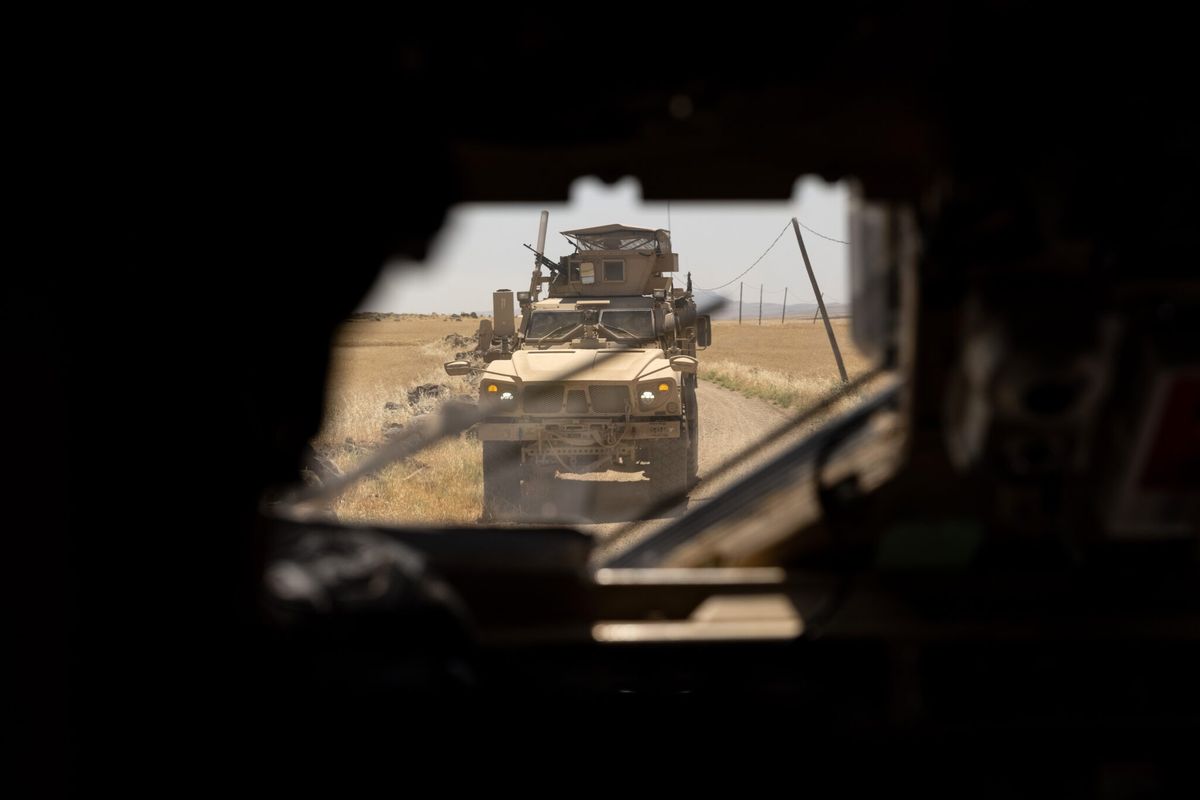Cipher Brief Note: Shiite Cleric Muqtada al-Sadr assured Iraqis this past weekend that the next Iraqi government will be ‘inclusive’. Al-Sadr, who once fought U.S. troops after the invation of Iraq, held meetings with Prime Minister Haider al-Adabi on Saturday and Hadi al-Amiri, the leader of a coalition backed by Iran, on Sunday. Al-Sadr is working to form a coalition government after no single bloc won a majority out of the May 12 vote.
Cipher Brief Expert John Nixon was a senior leadership analyst with the CIA from 1998 to 2011. He did several tours in Iraq and regularly wrote for, and briefed the most senior levels of the U.S. Government.
Muqtada al-Sadr’s seeming electoral victory in Iraq’s 12 May parliamentary elections overturned expert predictions of the outcome and has brought hope that he can bring good governance and stability to Iraq. Despite having outperformed all other lists, government formation relies on coalition building and Sadr’s victory is not necessarily assured at this point. However, the keys to understanding Sadr’s political career—that also suggest why he may come out on top after the government is formed—are his resiliency as a political player in Iraqi politics and his ability to evolve as a politician and adopt new tactics to advance his cause.
The 12 May election was perhaps the most unusual election in Iraq since the overthrow of Saddam Hussein. Low voter turnout (44%, down from 62% in 2014) and the fact that Sadr had the ability to turn his supporters out en masse may have played a decisive role in the election results.
One of the most striking changes highlighted by his 2018 electoral victory is Sadr’s transformation from firebrand Shia cleric to accommodationist politician. As he has matured, Sadr has become more moderate. Especially when you consider that, during the early years directly following the fall of Saddam’s government in 2003, Sadr was a polarizing figure whose militia, the Jaysh al-Mahdi, was responsible for some of the worst sectarian violence in Iraq.
- During the election campaign, Sadr reached out to secularists, communists, marginalized minorities, and member of the Sunni community.
- Sadr’s message of wanting to build a nationalist government of technocrats who will use the government to provide services to the people appears to have resonated with those Iraqis who decided to vote.
What is not so striking is that Muqtada al-Sadr has been moderating his political persona and trying to bridge the sectarian divide for well over a decade. Even during the time of sectarian violence in in 2007, Sadr was reaching out to the Sunni community,
- In 2008, Sadr dissolved most of the Jaysh al-Mahdi and began to use civil disobedience to express his views politically.
- After the fall of Baghdad in 2003, Sadr’s followers threatened the life of the senior Shia theologian, Grand Ayatollah Ali Sistani. Since then, Sadr has learned to accommodate himself to the structure of the Najaf Hawza, the Shia center of learning, and to Sistani’s leadership as he ultimately seeks to modernize it from within.
Muqtada al-Sadr’s resiliency as a political figure in Iraq has almost always been underestimated by many both inside and outside Iraq. After the assassination of his father and two elder brothers at the hands of Saddam’s Mukhabarat in 1999, Muqtada fought to become the recognized heir to his father’s religious and political legacy. This was not easy to do as his father had already designated an ostensible replacement, Grand Ayatollah Kazim al-Haeiri.
- Sadr also had to fight off challenges from within the Sadrist movement from members, such as Asaib Ahl al-Haq leader Qais al-Khazali, who saw Muqtada as immature and lacking in religious credentials.
In my own experience as a CIA leadership analyst, I briefed then-President George W. Bush on Sadr in 2008. Bush thought Sadr was a punk and a thug, which was the prevailing view at the time among many in the intelligence community, the military, and the administration. As I detail in my book, “Debriefing the President: The Interrogation of Saddam Hussein,” I tried telling the President that I believed that Sadr was here to stay, had millions of followers, and he would play an increasingly prominent role in Iraqi politics in the years to come. President Bush’s response was to tell me that he didn’t think that I knew what I was talking about.
Sadr’s ascent is still not assured currently. He will not head the government because he did not run as a candidate. It is likely he will choose Abadi to stay in the PM slot. To attract technocrats to his government, Sadr must reach across sectarian and party lines because his followers lack the skills and education to make the Iraqi government a success. Finally, Sadr will probably maintain an independent line between Iran and the US, both countries who see winning Baghdad’s allegiance as a zero-sum game.
In the past ten years, the gross incompetence and corruption of the political system has discredited the Iraqi political elite. Grand Ayatollah Sistani issued a statement criticizing the elite for corruption and telling voters not to vote for the failed candidates of the past. Sadr has repeatedly served as a force holding the government accountable to the people it ostensibly serves. Wouldn’t it be ironic if Muqtada al-Sadr became the historical change agent who brought good governance and stability to Iraq after all these years?















